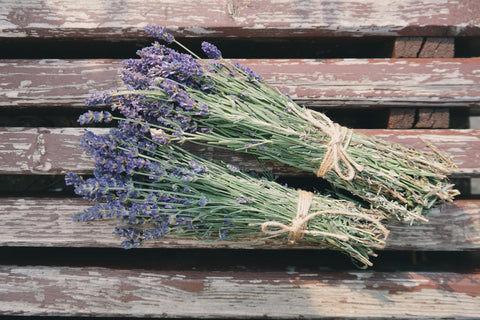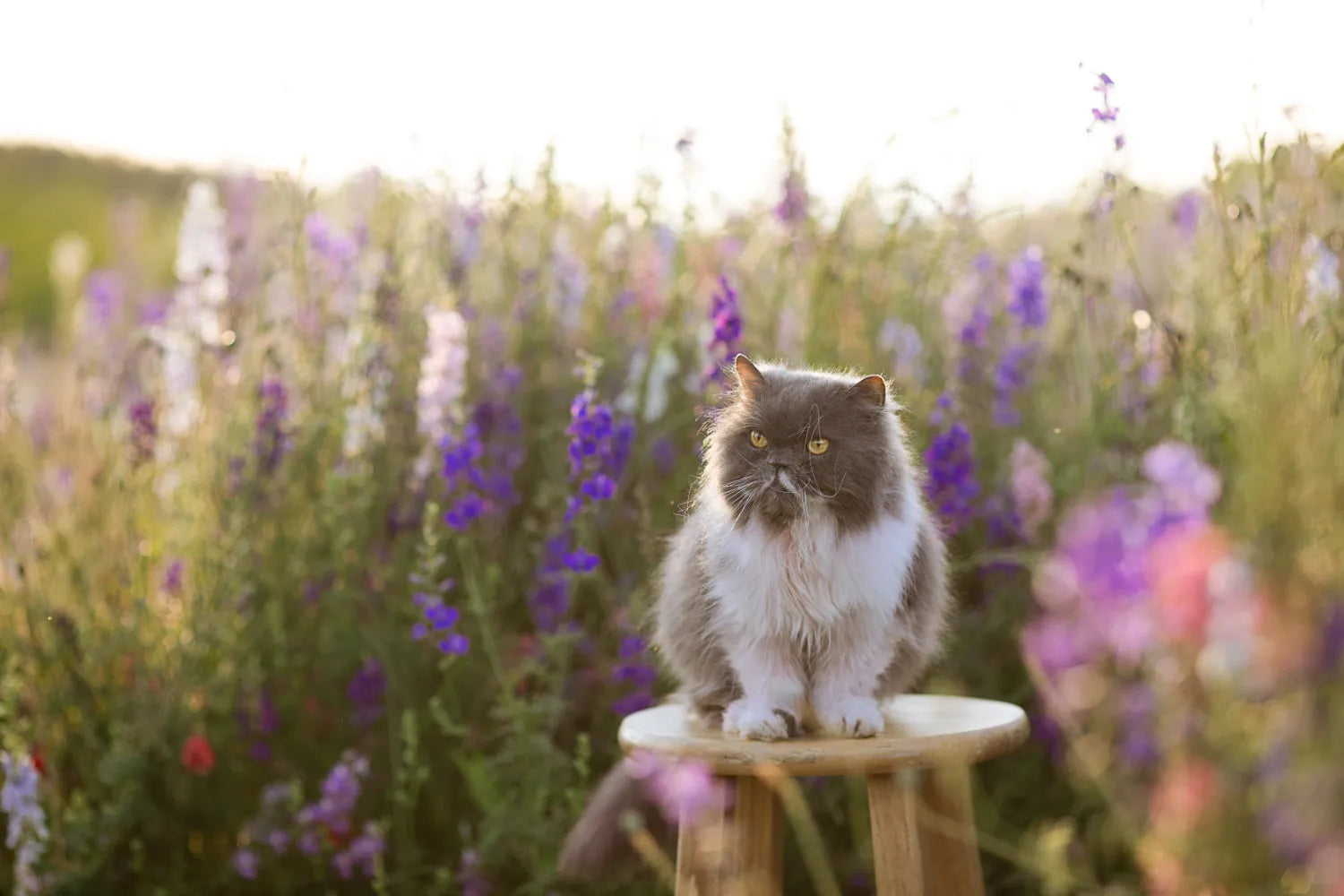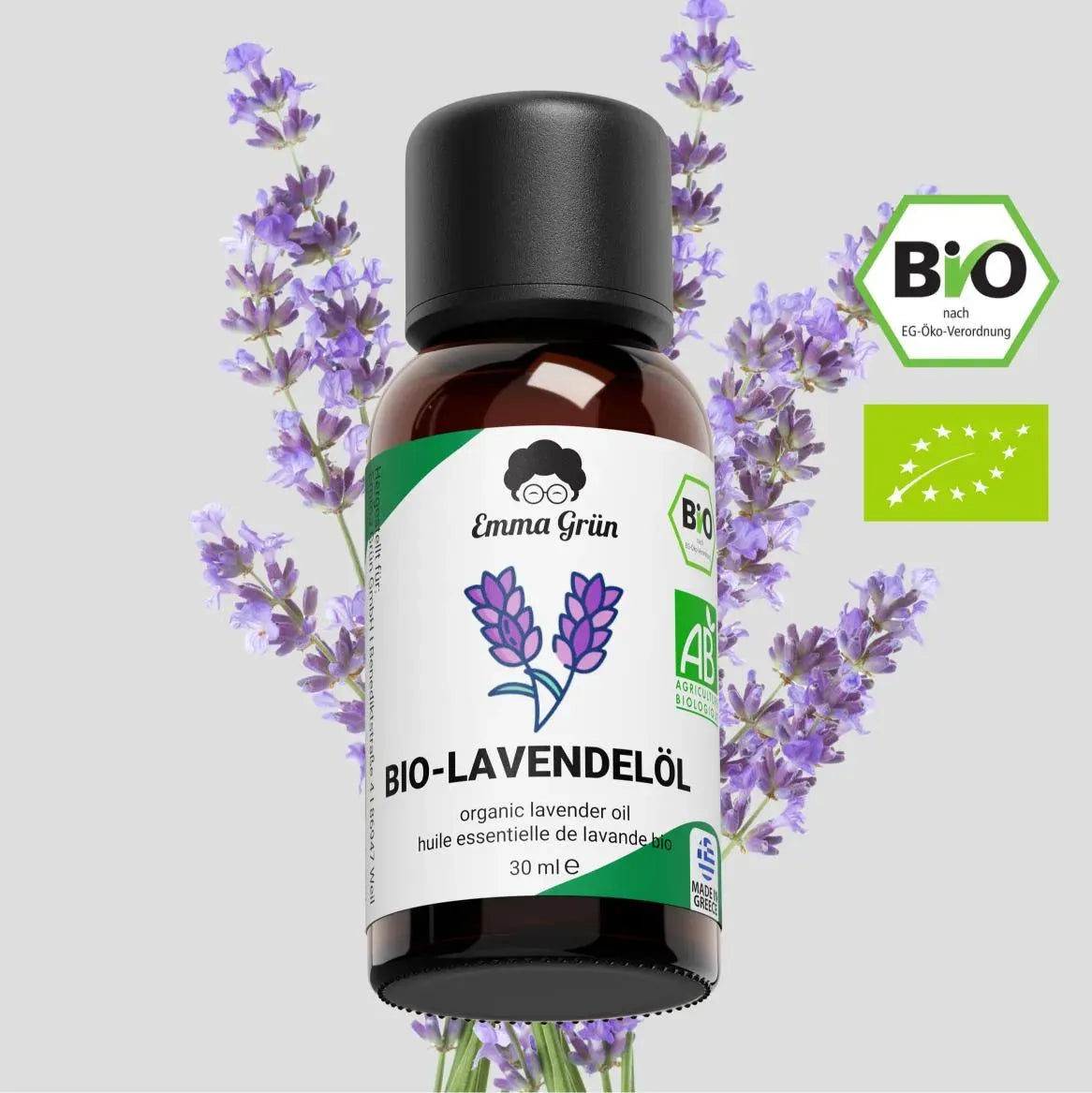You love your cat and the pleasant scent of lavender. But how do cats and lavender actually get along? Is it safe to have lavender near your furry friend? In this article, you'll learn everything you need to know about how to avoid mucous membrane irritation in cats when it comes to lavender.
Table of contents
- Introduction
- Lavender and cats: do they go together?
- Is lavender poisonous to cats?
- Signs of mucous membrane irritation in cats
- Tips for avoiding mucous membrane irritation
- What to do if a cat has inhaled lavender?
- Finding the right balance between cats and lavender
- Frequently Asked Questions (FAQs)
- Conclusion

Image source: Pixabay
Introduction
Hello cat lover! You are not alone if you feel attracted to the calming scent of lavender. Lavender is often valued for its relaxing properties and is used in various forms such as dried flowers, oils or scented sachets.
But as a responsible cat owner, you should ask yourself whether lavender is safe for your cat. We will take a closer look at this and give you tips on how to avoid mucous membrane irritation in cats.
Lavender and cats: do they go together?
Lavender is known for its pleasant scent and is often used in homes to scent rooms . However, when it comes to cats, there are some important points to consider. First of all, there is the question of whether lavender is toxic to cats or not. Lavender contains essential oils that contain certain compounds that can be problematic for cats . Cats' sensitive mucous membranes can react to these components and cause discomfort.
Is lavender poisonous to cats?
No, lavender is not toxic to cats per se. If only there weren't that little word "but". Lavender oil contains chemical components such as linalool and linalyl acetate , which are responsible for the pleasant scent. However, these components can cause irritation to the mucous membranes in cats . Cats' sensitive mucous membranes are more prone to reactions to certain substances than other animals. Therefore, it is important to consider the possible effects of lavender on cats.
Signs of mucous membrane irritation in cats
It is crucial to recognize the symptoms of mucous membrane irritation in cats so that you can act quickly. Signs of lavender irritation in cats may include:
- Sneeze
- Cough
- Red or watery eyes
- Sniffles
- Scratching in the neck area
If you notice one or more of these symptoms in your cat, you should act immediately .
Tips for avoiding mucous membrane irritation
To avoid mucous membrane irritation in cats, you can take a few simple measures:
- Keep lavender plants out of your cat’s reach.
- Use alternative scent options such as cat-friendly herbs or essential oils .
- If you use lavender oil in your home, be careful not to let your cat come into direct contact with it.
But what if your cat has already inhaled the essential oil and the first signs of mucous membrane irritation appear?
What to do if a cat has inhaled lavender?
If your cat has inhaled lavender and is showing signs of mucous membrane irritation, it is important to act quickly . Contact your veterinarian and discuss the problem. The veterinarian can make an accurate diagnosis and recommend appropriate treatment methods to provide relief for your cat.
Finding the right balance between cats and lavender
Every cat is unique and will react differently to lavender. Some cats may like the scent, while others may be more sensitive to it. Monitor your cat's reaction to lavender and take appropriate action . It's important to keep their safety and well-being in mind.

Image source: Pexels
Frequently Asked Questions (FAQs)
Is lavender poisonous to cats?
No, but: Lavender can cause irritation to the mucous membranes of cats. It is important to avoid direct contact between cats and lavender to prevent possible problems.
How do I know if my cat has mucous membrane irritation?
Symptoms of mucous membrane irritation in cats can include sneezing, coughing, red eyes, watery eyes, runny nose and scratching in the throat area.
Can I safely use lavender oil in my home if I have a cat?
It is recommended to use lavender oil with caution if you have a cat. Keep your cat away from direct contact with the oil to avoid possible irritation.
What are cat-friendly alternatives to lavender?
There are many cat-friendly herbs such as catnip or valerian that have a similar scent and are safe for cats.
Conclusion
Lavender can cause mucous membrane irritation for cats, so caution is advised. Make sure your cat does not have direct contact with lavender and observe its reaction. There are also cat-friendly alternatives to create a pleasant scent in your home. Your cat's safety and well-being should always come first.
Sources
- Smith, JD, & Johnson, RK (2022). Cats and plant scents: A guide for cat owners. Journal of Pet Behavior, 18(2), 123-135.
- Veterinary literature - General information on keeping cats.
- Cat Health and Care: A Guide for Cat Owners. (3rd edition). Pet Medicine Publishers.
- Veterinary practice Müller, M. (2021). Personal communication.
- Cat magazine "Samtpfote". Issue 05/2022.
- Online article: "The dangers of lavender for cats" - Tierportal.de.



